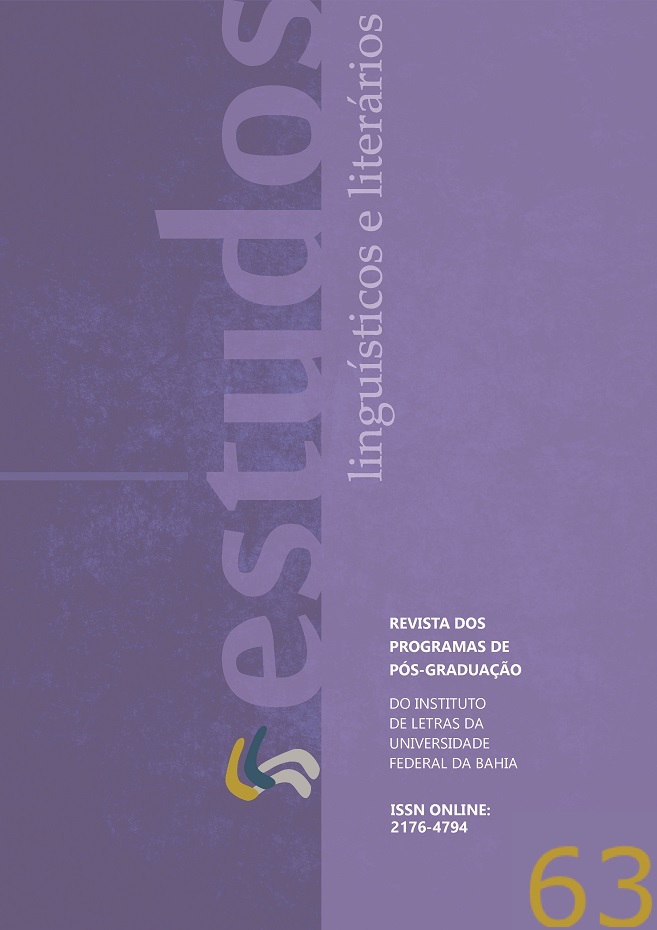A PREPOSIÇÃO PARA SOB A ÓTICA SÓCIO-HISTÓRICA: ANÁLISE DO ITEM NA ESCRITA DE ALUNOS DO 9o ANO DE UMA ESCOLA RURBANA | THE PREPOSITION PARA UNDER THE SOCIO-HISTORICAL OPTICS: ANALYSIS OF THE ITEM IN THE WRITING OF STUDENTS OF THE 9TH GRADE OF A RURBAN ...
DOI:
https://doi.org/10.9771/ell.v0i63.33773Parole chiave:
Sócio-História, Sociolinguística, Sala de aula, Preposição, RurbanoAbstract
Resumo: Este artigo objetiva estudar, na escrita de alunos do 9o ano de uma escola rurbana, a variação do uso da preposição PARA e A em contextos de verbos de movimento, fato que averiguaremos com base na Sócio-História, cogitando a propensão desses itens à gramaticalização desde sua gênese, segundo destaca Said Ali (1966 [1921]), adotando a concepção de língua enquanto sistema heterogêneo e maleável, afeito à variação e mudança, conforme preconizado em Labov (2008 [1975]), Mollica (2017), Lucchesi (2015), Martelotta e Kenedy (2015).
Para tanto, partimos da sala de aula, locus propício à reflexão sobre a língua real, como propõe Bortoni-Ricardo (2004), tomando a Sociolinguística Laboviana para análise das ocorrências, cujos resultados parciais apontam a confirmação da concorrência entre PARA e A, mais condicionada por fatores linguísticos do que extralinguísticos.
Abstract: This article aims to study the variation of the use of the preposition PARA as opposed to A, in contexts of movement verbs in the writing of 9th grade students, in a rurban school, a fact that will be investigated based on Socio-History, considering the propensity of these items to grammaticalization since its genesis, according to Said Ali (1966 [1921]), adopting the concept of language as a heterogeneous and malleable system, subject to variation and change, as advocated in Labov (2008 [1975]), Mollica (2017), Lucchesi 2015), Martelotta and Kenedy (2015). For that, we start from the classroom, conducive locus to reflection on the real language, as proposed by Bortoni-Ricardo (2004), taking the Labovian Sociolinguistics to analyze the occurrences, whose partial results point to the confirmation of the competition between PARA and A, more conditioned by linguistic rather than extralinguistic factors.
Keywords: Socio-History; Sociolinguistics; Classroom; Preposition; Rurban


